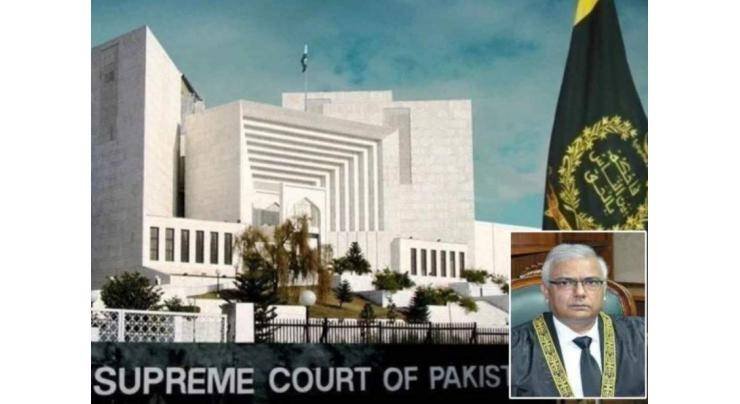
Justice Aminuddin Khan has been appointed head of a newly formed seven-member constitutional bench by the Judicial Commission of Pakistan (JCP). This decision came from a JCP meeting chaired by Chief Justice of Pakistan (CJP) Yahya Afridi, with a 7-5 majority vote in favor of Justice Aminuddin’s leadership.
The newly established bench includes Justice Ayesha Malik from Punjab, Justices Naeem Akhtar Afghan and Jamal Mandokhel from Balochistan, Justices Muhammad Ali Mazhar and Hasan Azhar Rizvi from Sindh, and Justice Musarrat Hilali from Khyber Pakhtunkhwa.
CJP Yahya Afridi, Justice Mansoor Ali Shah, Justice Muneeb Akhtar, and Pakistan Tehreek-e-Insaf (PTI) representatives Omar Ayub and Shibli Faraz were among the five who opposed the appointment.
The JCP meeting, attended by key legal figures including Federal Law Minister Azam Nazir Tarar, Attorney General Mansoor Usman Awan, and representatives from the Pakistan Bar Council, People’s Party, and PML-N, also addressed several important issues, such as the setup of the Judicial Commission Secretariat and the establishment of constitutional benches.
New Developments under the 26th Constitutional Amendment
The meeting also focused on implications of the recently passed 26th constitutional amendment. Under the amendment, the tenure of the Chief Justice of Pakistan is now set at three years. A 12-member parliamentary committee—comprising eight members from the National Assembly and four from the Senate—will be responsible for nominating the next Chief Justice from a panel of the three most senior judges. This nomination will be sent to the Prime Minister, who will then forward it to the President for approval.
Furthermore, the Judicial Commission of Pakistan will play a key role in Supreme Court appointments. The JCP will include the Chief Justice, three senior judges, two members from each of the National Assembly and Senate, the Federal Minister for Law and Justice, the Attorney General, and a Pakistan Bar Council nominee with at least 15 years of Supreme Court experience.
The 26th constitutional amendment has been met with challenges, with several petitions filed in the Supreme Court.





